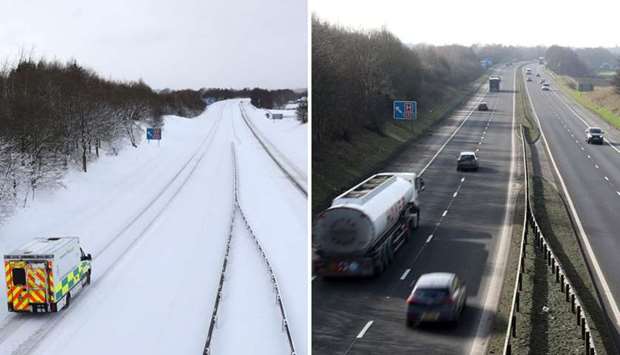Last week’s record winter heat in the UK was so far above normal trends that scientists have been forced to reconsider their statistical models, with one expert calling the temperature jump “incredible”.
UK temperature records have tumbled in the past 10 days.
Last Thursday, Scotland experienced its highest winter warmth of 18.3C in Aboyne, in Aberdeenshire. On Tuesday, Wales set a new UK high for the season for 20.8 in Porthmadog. This was beaten on Wednesday, when Kew registered 21.2C.
Even taking into account the underlying 1C of global heating from carbon emissions this was a surprise to some scientists.
Geert Jan van Oldenborgh, a climate researcher at Royal Netherlands Meteorolgical Institute who has conducted a preliminary study of the trend data from Reading and central England, said the probability of this week’s temperatures was close to zero.
“This is an incredible jump in record temperatures. If you asked me a few months ago, I would have said it is ridiculous,” he said.
“It’s at least a one-in 200-year event, but it could be more because my statistical tools break down because this was so far outside what we are used to in February.”
According to the Met Office, the mean maximum temperature in February was at up to 3.5C above the average between 1981 and 2010.
This was due to large areas of high pressure over continental Europe that brought warm air from the Canaries and north Africa.
Government meteorologists are now studying exactly how much of this unusual heat can be attributed to man-made climate change.
Grahame Madge, a spokesman for the Met Office, said: “For a lot of people an opportunity to enjoy a nice day but for many others it was shocking to see values above 20C. Clearly having that warm weather record broken is, we think, largely to do with climate change, amplifying those warm events. That was widely recognised by the public.”
Previous Met Office studies show the man-made carbon emissions in the atmosphere made last summer’s heatwave 30 times more likely, and extremes of heat are now being recorded 10 times more often than extremes of cold.
The weirding of the weather — which was warmer than Bermuda this week and colder than the Arctic at the same time last year — has prompted mixed reactions.
A study of the coverage by CarbonBrief highlights how images of wildfires on Saddleworth Moor and stories about water shortages contrasted with cheery headlines such as “Fabruary” and reports about ice-cream sales.
Nick Bridge, the UK’s chief climate envoy, was among many to express frustration with the lack of concern in many reports by the BBC and others:
Yet the first climate debate in parliament for two years was sparsely attended by MPs.
The disparity between the growing evidence of crisis and the limp response by politicians and most media is expected to galvanise more direct action of the sort seen in recent months with student strikes and acts of civil disobedience by Extinction Rebellion protesters.
“Thanks to the students, who made us act,” said Layla Moran, a Liberal Democrat MP who proposed the debate with Caroline Lucas of the Green party, and urged legislators to listen to the child activists.
“The message that came to us from the young people, who struck the other day, is that we must now take this as an emergency. We cannot wait another two years to debate this in this place.”
Lucas said time was running out but the government was going backwards on climate action.
“Since 2010 almost every existing sensible climate measure has been torched: zero carbon homes scrapped, onshore wind effectively banned, solar power shafted, the Green Investment Bank flogged off, and fracking forced on local communities.”
Claire Perry, the minister of state for energy and clean growth, accepted that current efforts were insufficient.
“We can take pride in the UK’s record in tackling climate change, but we know we have to do more, and we will do more. We must keep leading from the front so we can look the next generation in the eye and say for your future we protected Planet A because there is no Planet B.”
But the sparse turnout highlighted the low priority this continues to be for most politicians.
Extinction Rebellion has shared images of the largely empty chamber on social networks and echoed Lucas’s call for the government to declare a climate emergency.
It plans to support a global school strike on March 15 and to stage a week of disruption starting on April 15.
Other environment groups are also stepping up pressure on the government.
“We’re living through a climate emergency, so really our politicians should be debating this every week,” said Mel Evans, climate campaigner for Greenpeace UK. “It’s time for us all to demand that our government faces up to reality and calls the crisis what it is, a climate emergency.”

The M876 motorway in Scotland on January 31, 2018, (left) during the Beast from the East, and in February (right) this year.
